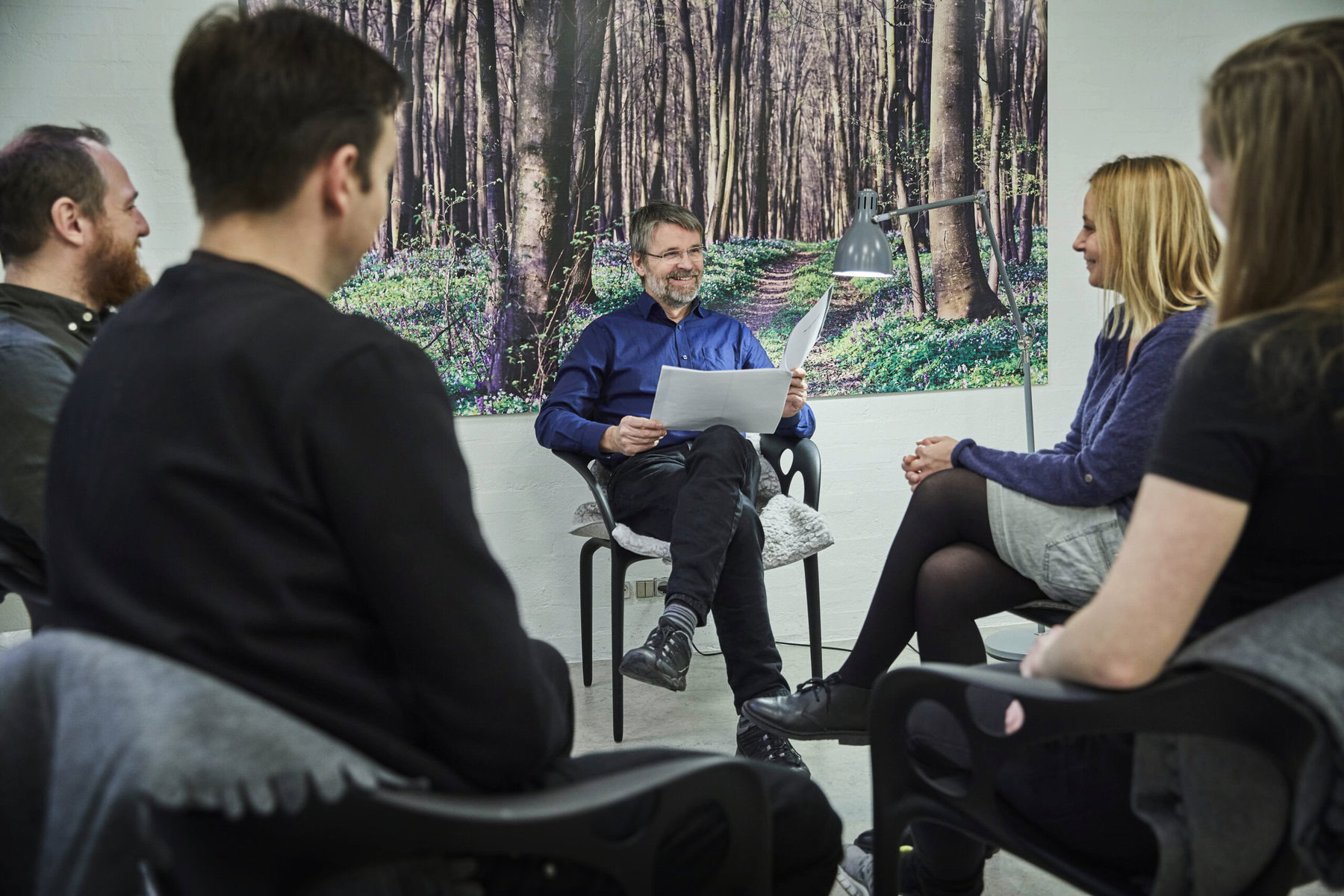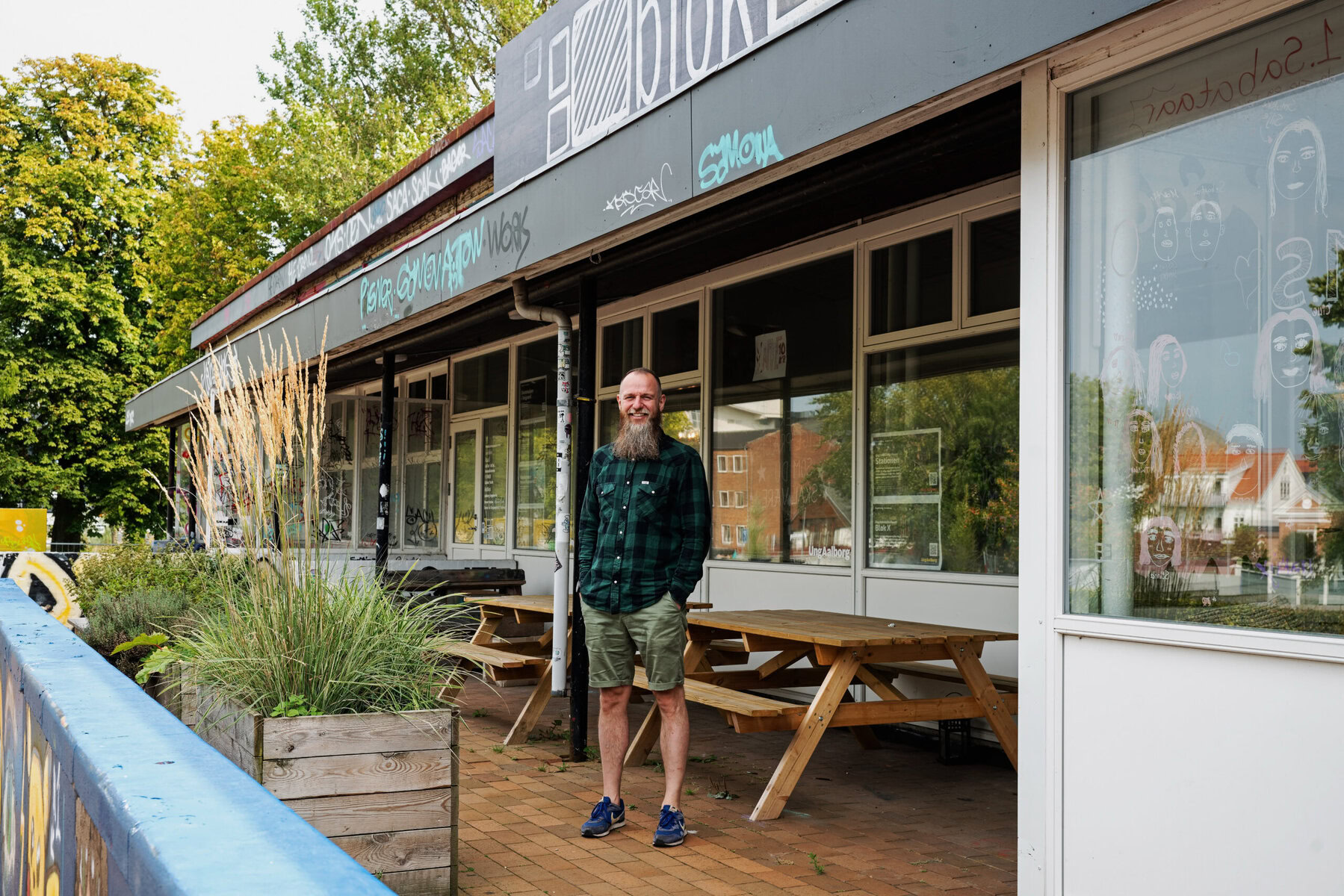This is an excerpt from The Connection Cure: The Prescriptive Power of Movement, Nature, Art, Service, and Belonging (Simon & Schuster) by Julia Hotz.
Jonas has always loved exploring other worlds — whether they’re the post-apocalyptic realms of his computer games, or the ancient civilizations of his history textbooks. “Imagine, you live a quiet life in the city with your parents, and then suddenly, you’re transported to a completely different place where you don’t know what anyone is saying,” he says of his favorite ancient world, the Roman Empire. “It’s gotta be traumatic as hell.”
On some level, Jonas could relate. Growing up, though he always loved learning, he was ruthlessly bullied in school. Seeking escape, he moved away for his graduate studies, but almost as soon as he arrived, that’s when his “really bad health problems began,” he says.
Suddenly, out of the blue, he’d feel his heart racing, he’d have trouble breathing, and feel consumed by crippling panic. Later, he was diagnosed with panic disorder and agoraphobia.
Especially when Jonas was trying to meet new people, nothing felt worse than knowing that he might suddenly erupt into a panic attack, and kind of like the Roman Empire commoner, he felt like nobody could understand.
Seeking an escape from his thoughts, he started to smoke weed. “I felt most comfortable while smoking, but then I began to get more panic attacks when I didn’t have any weed, which made me more and more isolated.”
When the panic attacks got so bad he couldn’t leave the apartment, Jonas knew he needed more help. After enrolling in group therapy and a drug treatment program, he gave up all substances and returned to his hometown in Aalborg, a tiny former Viking city in Denmark. But returning was a double-edged sword, he says. “I had a long period where I wasn’t really doing anything besides looking for a job, so it made me isolate and get really bad anxiety again.”
Jonas realized he needed to find a balance between comfort and exploration. “If I stayed too close to home and never went out, it would worsen my anxiety, so I needed to, like, push my boundaries a little, but not too much,” he says.
That’s when one of his mental health case workers recommended Kulturvitaminer — a 10-week program, designed for unemployed people dealing with psychological struggles like anxiety, by offering group-based “culture vitamins” like concert tickets, sing-a-longs and read-alouds. At first, Jonas says he wasn’t so sure. “When you’re sitting at home with anxiety, it’s obviously very scary to have to leave the house.” But when his kid-rooted explorer instincts overruled his anxious ones, he decided to give Kulturvitaminer a try.
Regine Galanti, a clinical psychologist, explains why exposing ourselves — literally or in our imagination — to the stressors that bring us anxiety is a positive first step. “Often what we do with anxiety is feel it coming on, and then we do everything we can to get away from that feeling and that fear, but we don’t actually get away from it because we don’t follow the anxiety through to its logical conclusion, and so it just takes it over and piles up in [our] head.”
Instead, by “facing the thing that you’re most afraid of, even in your head,” we can learn to feel less anxious over time, Galanti explains of an evidence-backed practice called exposure therapy. In other words, Jonas’ anxiety about leaving the house and meeting new people might actually be mitigated by leaving the house and meeting new people.
But to do this, there has to be a good reason to leave the house in the first place. That’s one reason why the focus of Kulturvitaminer is very different from group therapy, explains Mikael Odder Nielsen, the Danish Health Authority worker who leads the program. “With a lot of these programs, people are used to having to talk about their sickness and explain why they’re there, but the first thing I tell them on the first day is, ‘Don’t share it.’ Maybe in the 10 weeks together, it will feel good to share with the group, but we shouldn’t be united because we’re sick. We should be united because we all want to do cultural stuff.”
Crushed by negative news?
Sign up for the Reasons to be Cheerful newsletter.
In practice, that cultural stuff includes trips to the local symphony hall, visits to art galleries and tours through the historical archives museum. Through learning about the lives of other people, the goal is for Kulturvitaminer participants to reconnect with themselves. Bente Jensen, the local archivist, describes it as a chance for you to “be a detective in your own life.”
Nielsen walks the walk of the program. As a rock band guitarist, he says being around music is “why [his] own mental health is so good,” especially when he connects with his singer’s lyrics. “It’s kind of like a relief from my own feelings if someone else is expressing them for me.”
The idea behind Kulturvitaminer is similar — exposing people to a range of art and cultural experiences to help them connect with their own feelings, even the negative ones. Especially in a society known for its hygge and focus on happiness, Nielsen says exposure to the range of emotional states is key. “When I go to work, I have to smile; when I get home, I have to be happy and play with my children. But sometimes I feel angry, sometimes I feel jealous, sometimes I feel sad, and there’s not much space in our society for that,” he says.

One of the places Kulturvitaminer aims to create this space for genuine expression is through its sessions on “Shared Reading.” “You sit together, listen and discuss very normal human things, and it helps you see you’re not alone,” explains Vita Andersen, the Aalborg librarian who leads the sessions. She says she focuses on selecting high-quality short stories and texts. “Maybe people have some of the same experiences or issues, and they can talk about it if they want to.”
Vita recalls one memorable instance of this, when the selected story was about a man who believes he’s a shoe but whose wife supports him anyway. One woman in the session was nearly in tears, Vita says. “What popped up in her mind was her realizing, ‘My god, I’m like that man. I’m the one with the mental issues, and my husband is still there for me.’”
Now spread to over 200 libraries in Denmark, “Shared Reading” uses the principles of a much older practice called bibliotherapy. The goal is for readers to use “vicarious experience” to “engage [their] emotions and free them for conscious and productive use,” writes Caroline Shrodes, who popularized bibliotherapy in mid-20th-century America.

Some studies show bibliotherapy works, especially for treating anxiety in young people. A study of a four-week bibliotherapy intervention to children with nighttime fears found it significantly lessened the severity of their anxiety, reduced the number of their self-reported fears, and increased the number of nights they slept in their own bed. A review of eight randomized controlled trials found bibliotherapy for children and adolescents with depression and anxiety was significantly more effective than control conditions in reducing symptoms. And another review of 13 studies on bibliotherapy interventions found it helped patients develop several new capacities, including “a resignification of their own activities to develop a new outlook on their moral horizon.”
As for Kulturvitaminer, which is aimed at adults, the studies show promising results, too. The results of four Danish municipalities’ pilots show that participants experienced “increased energy level, increased self esteem, more joy in life, less panic attacks, increased motivation, a better understanding of their own needs, and an increased level of self-care.”
Although not all participants ultimately go to work — the government’s incentive behind the program — Mikael says it helps participants leave their house, an important first step. “They realized it’s much worse for them to stay home, isolated, not talking to people, not part of anything. They realized what they thought was going to be the worst thing for them actually was the best thing.’”
That’s been true for Jonas. “When I was doing Kulturvitaminer, I got a lot more energy; I wanted to talk more. I had something to talk about,” he says. “Both my parents recognized that as a period where I really grew a lot and became myself again, more than I had been for a long time.”
Therapeutically speaking, joining the cultural activities, especially the group singalongs, was a big step forward in coping with anxiety. But Jonas says he appreciated how the program didn’t focus on his anxiety.
“When I’m talking about my anxiety and going to meetings about anxiety and getting treatment for anxiety, it can be like a self-fulfilling prophecy. Like, if I’m a little scared to meet new people, which I feel like everyone is, then it becomes, ‘Oh, it must be the anxiety,’ and if you get too focused on it, you can really give yourself anxiety,” he says. “That hands-off approach where you could really just sit back and enjoy yourself was key for me.”
Today, Jonas says he’s learning to enjoy himself more in Aalborg by visiting the sort of institutions he did with Kulturvitaminer, like the archives museum and the orchestra. And when he’s feeling especially anxious, he says he revisits his favorite culture “vitamin” from the program, and from his childhood: reading.
“When my brain is really overworked with something that I just can’t let go, I’ll crack open a book, and maybe even a favorite book that I’ve read several times before, just to fill my thoughts with something else and just let go of whatever is going in circles,” he says. “It’s a good way for me to escape a little and relax.”
The post Don’t Forget to Take Your ‘Culture Vitamins’ appeared first on Reasons to be Cheerful.


